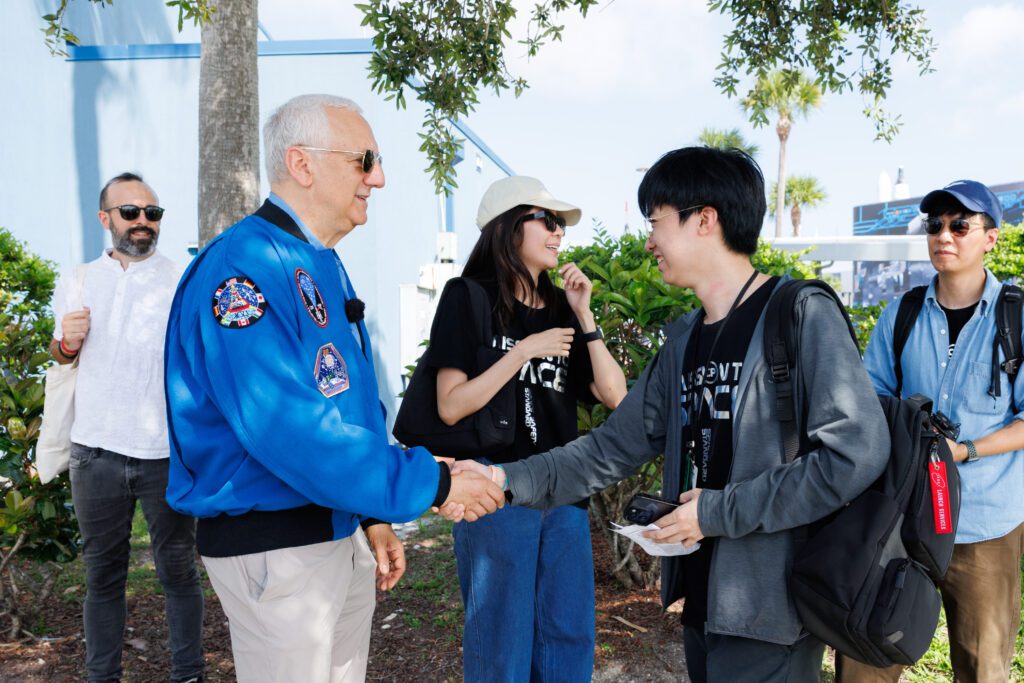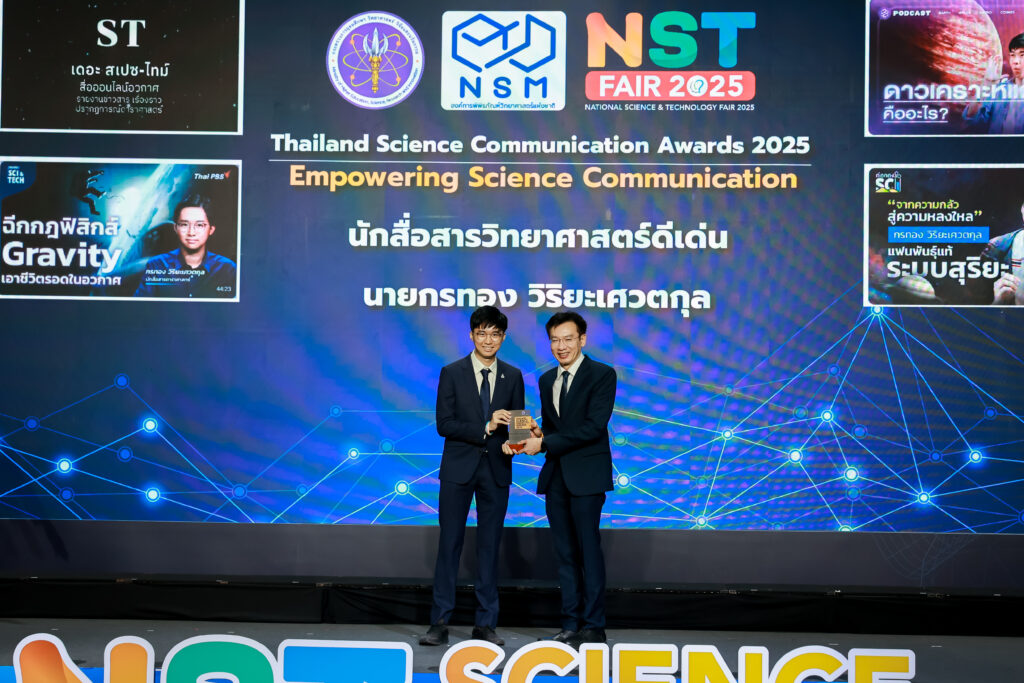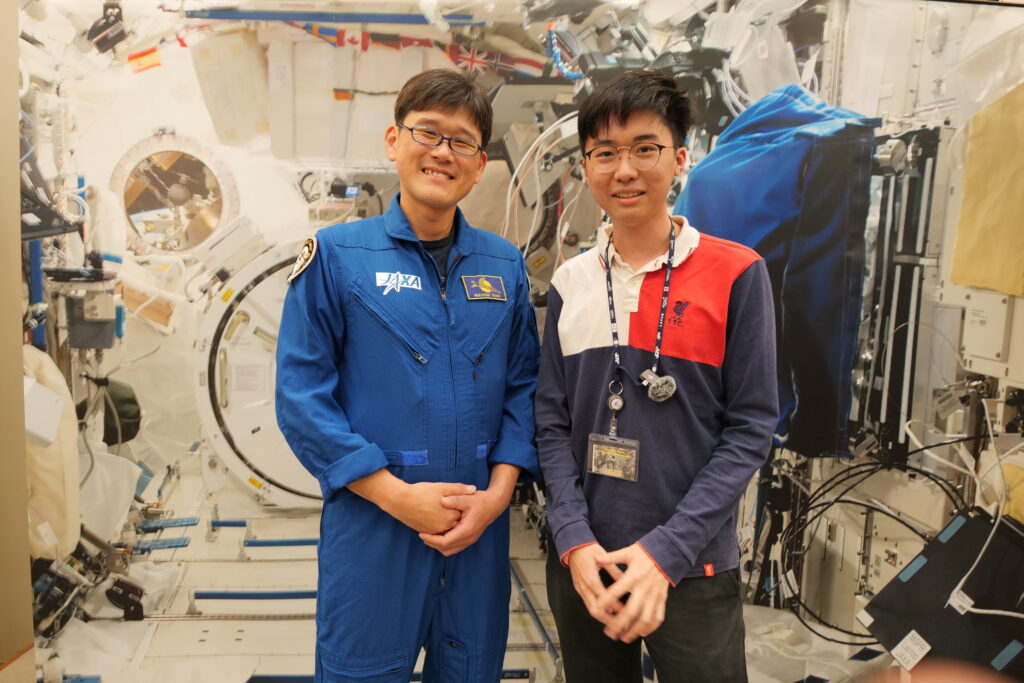On quiet nights, while the world slept, SISB alumnus Kornthong (Korn) Wiriyasethakul was wide awake, peering into the cosmos from his bedroom window since he was eight. What began as a simple fascination soon grew into something greater, leading him to represent SISB on the Workpoint TV show แฟนพันธุ์แท้ (fan pun tae). There, he stood as the youngest contestant, holding his own against seasoned astronomy enthusiasts and professionals in the field. But it wasn’t merely just a moment on television, it ignited a journey for Korn to inspire countless others to look up and wonder.
Today, Korn, better known as KornKT, stands as one of Thailand’s most recognisable astronomy communicators, captivating over 1 million of his followers with the beauty and mysteries of the universe. Through engaging videos, insightful columns for THE STANDARD and The Space Times, Korn bridges the gap between the vastness of space and everyday life. His message is simple yet profound: the sky is not the limit, it’s only the beginning.
The Q&A
Q: If we start from the beginning, could you share what first made you fall in love with astronomy?
A: It all started from looking at the full moon that endlessly followed the car, which made me feel scared at first, but it slowly turned into curiosity. Before I knew it, I had already developed a keen interest in astronomy.
Q: Your appearance on Workpoint during your SISB years was such a defining moment. Walk us through your memories of that day, and how did that experience shape you, both as a person and as a future science communicator?
A: It was very unexpected because I was a rather shy kid, even speaking in front of the classroom was a challenge for me. But this was an appearance on national television, so I was extremely excited.
Of course, I didn’t win, but sharing the stage with such talented people from across the country was an invaluable experience. Realizing that there were still so many things I didn’t know made me want to understand more and share the wonders of astronomy, which ultimately led me to become the science communicator I am today.
The most important thing in communication is to have genuine knowledge, to admit what we don’t know, and to prioritize credibility.
Q: At this moment, you’ve inspired over a million people with the content you share. How did you grow such a dedicated following, and what’s your approach to connecting with your audience?
A: It’s truly incredible how much astronomy can inspire people. I believe that astronomy is something everyone can relate to, and as a science communicator, it’s my duty to make people feel that it is not just another subject, but rather something fascinating and accessible.
The most important thing in communication is to have genuine knowledge, to admit what we don’t know, and to prioritize credibility. In an era where anyone can be a content creator, we have to be even more responsible for what we communicate and produce.
Q: You’ve achieved so much as an astronomy communicator but could you share the most rewarding or unforgettable moment of your career so far?
A: Of course, receiving the Best Science Communicator of the Year award from the NSM (National Science Museum) was absolutely fantastic, as were the awards from various organizations that recognized the importance of my science communication work.
But the best thing in my career would have to be the opportunity to pass on inspiration to my audience. Meeting young people who tell me that my videos got them back into astronomy, or that they succeeded in their work because of the content I created, is the most rewarding and unforgettable moment of my career.



Korn has met acclaimed astronauts and earned multiple awards, showcasing his inspiration, dedication, and pursuit of excellence.
Q: So, from your perspective, what do you think is the most fascinating mystery or the next big breakthrough waiting for us in the field of astronomy?
A: There are so many fascinating unknowns in astronomy, and still many questions for which we don’t have clear answers. One of them would undoubtedly be, “Are we really alone in the universe?”
Discovering a sign of alien life, or even just finding evidence to indicate that humans are not alone, would be the greatest discovery in all of humankind history. Because even though there is a high probability, we still haven’t found any proof that life exists beyond Earth (and I hope I’ll be alive to see the news of that discovery).
Q: Finally, what message would you like to give to current SISB students who have big dreams, just like you?
A: Actually, part of my current success also started right here when I was studying at SISB. I still remember being in T. Kristen’s science class and realizing that science was fun, and that good communication will be crucial for people to enjoy it. That’s what led me to become a science communicator today.
For the students who have big dreams, you might be familiar with the saying, “the sky is the limit.” But in reality, the sky isn’t the limit at all; the vastness of space and the laws of physics are. So, dream as big as you possibly can, commit to it fully, and you will achieve success in ways you never thought possible.
May the starlights guide you all!


